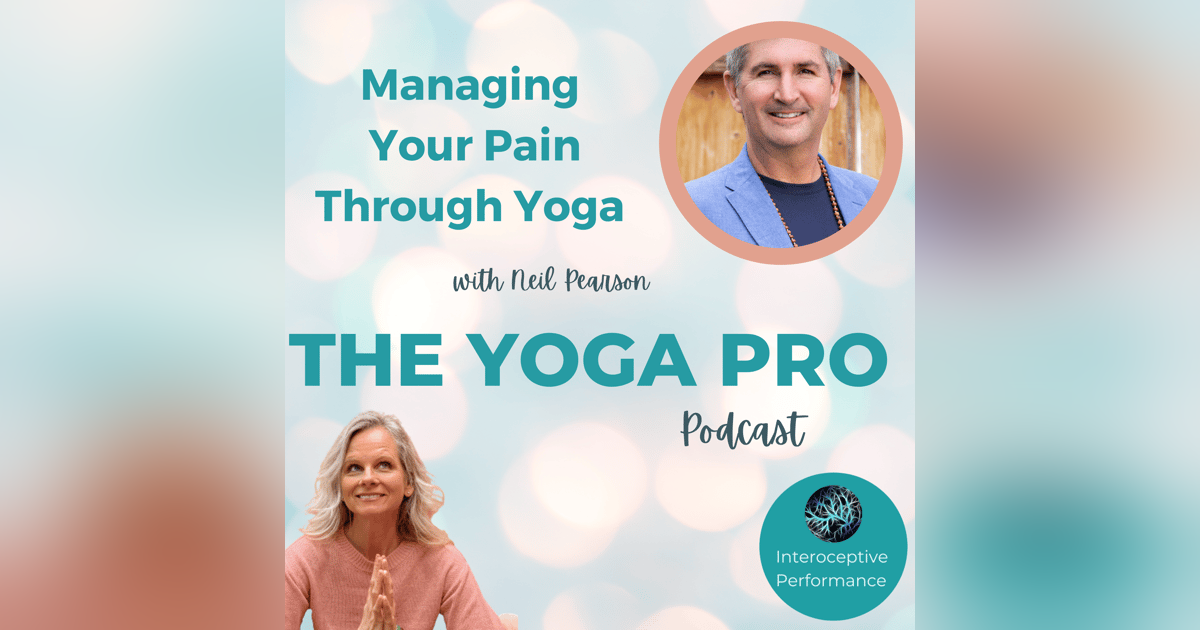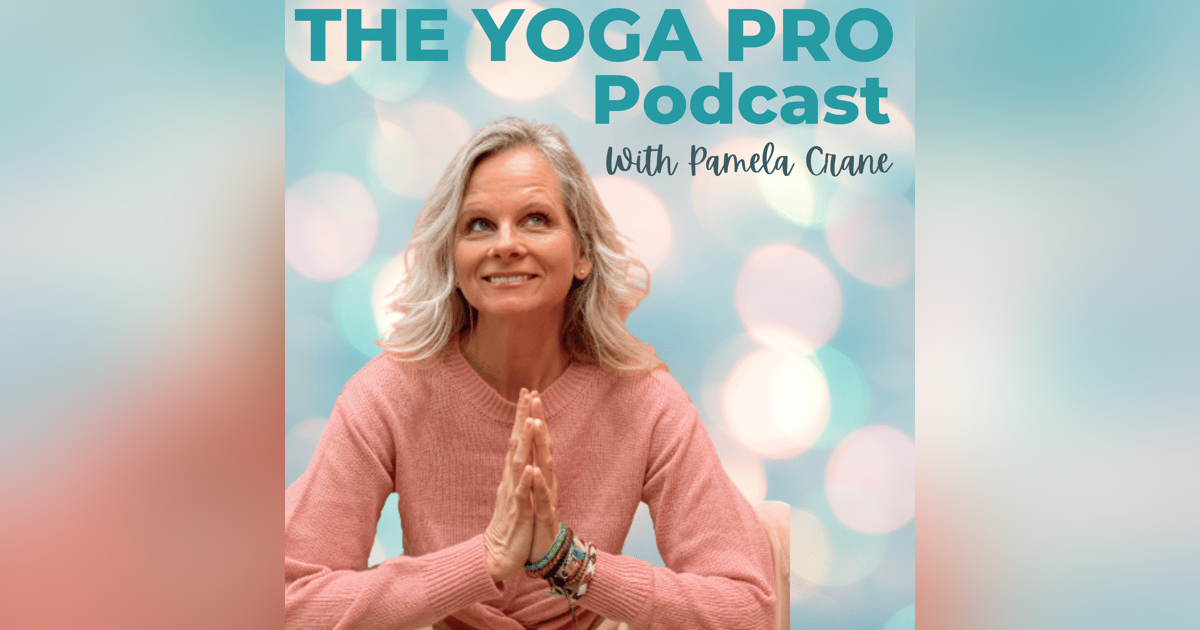Managing Pain Through Yoga with Neil Pearson

Summary: Nonpharmacological pain care is a hot topic and yoga is at the forefront of the conversation. Pain care science is ever changing and Neil Pearson is here to share his insights and research. Neil Pearson, (PT, MSc[RHBS], BA-BPHE,...
Summary:
Nonpharmacological pain care is a hot topic and yoga is at the forefront of the conversation. Pain care science is ever changing and Neil Pearson is here to share his insights and research.
Neil Pearson, (PT, MSc[RHBS], BA-BPHE, C-IAYT, ERYT500) is a physiotherapist, yoga therapist, Clinical Assistant Professor at University of British Columbia, faculty in four yoga therapy training programs, and developer of the Pain Care Yoga and the Pain Care Aware programs. Neil is also an author of the pain education ebook, Understand Pain Live Well Again (2008) and most-recently co-author/editor of ‘Yoga and Science in Pain Care: Treating the Person in Pain (2019).
Topics:
0:51 Why listening to the person in pain is important
3:35 The pain story
4:50 Curiosity and philosophy as teachers
6:15 Emotional suffering and physical pain
9:40 Physiology and the relationship between anxiety and pain
“There are differences. Obviously there are differences because our experience with them is different, but there are so many overlaps between the stuff that we call emotional pain and the stuff that we can call it, physical pain.”
11:55 Covid and persistent pain
12:52 Pain overriding pain
14:51 Pain as a signal to change behavior
18:44 Paying attention to make chang
“We also know from science and human experience, that there are things that we can do as individuals and that a lot of these things, if we can find the right way to do them, the more we do them, the better we get at them, and the more we can change our physiology so that it's not just a temporary change”
21:02 Pain is changeable
22:48 Why tissue damage isn’t an indication of pain
27:18 Pain tolerance explained
32:09 Pain vs sensation in language
36:28 Four point interoceptive guideline
43:08 Discernment as a tool
48:21 The role of the health professional
50:09 Self-management
51:39 Oxytocin and the compassionate relationship
“When we have a caring, trusting relationship; especially a compassionate relationship. is that things like heart rate and heart rate variability and brainwaves and skin conductance and all these different autonomic physiological things are actually syncing up when you're with other people.”
52:32 Feeling connection online
56:38 Importance of language
58:37 Pain and your story
Interact with Neil:
Website:
Pain Care First Five Steps: https://paincareu.com/courses/first-five-steps-free/
Yoga for People in Pain Paper: https://lifeisnow.ca/wp-content/uploads/2015/09/Yoga_Chronic_Pain_International_Journal_Yoga_Therapy_2008.pdf?fbclid=IwAR09gKb7w53RtBtqK7DpcxKSSFLHjQjdjewYabs8zJ9ZPXZFnf63dzM5jLM
Link to Book Science of Yoga in Pain Care: https://amzn.to/3ll4AYa (Affiliate link)
Interact with Pamela:
www.interoceptiveperformance.com
info@interoceptiveperformance.com
www.facebook.com/interoceptiveperformance
www.instagram.com/interoceptiveperformance
www.youtube.com/interoceptiveperformance
Sign up for The Yamas and Niyamas in Practice
https://interoceptiveperformance.vipmembervault.com/products/courses/view/1044526
Get in The Yoga Pro Hub (FREE) or browse courses in the member vault
https://interoceptiveperformance.vipmembervault.com
Subscribe to the newsletter
https://mailchi.mp/e4bd5f0b53c0/interoceptive-performance-landing-page
Work with Pamela
https://www.schedulicity.com/scheduling/CYTQ9A/services
Music: The State of Things (The Bouncy Song) by Rena Wren is used with permission.









